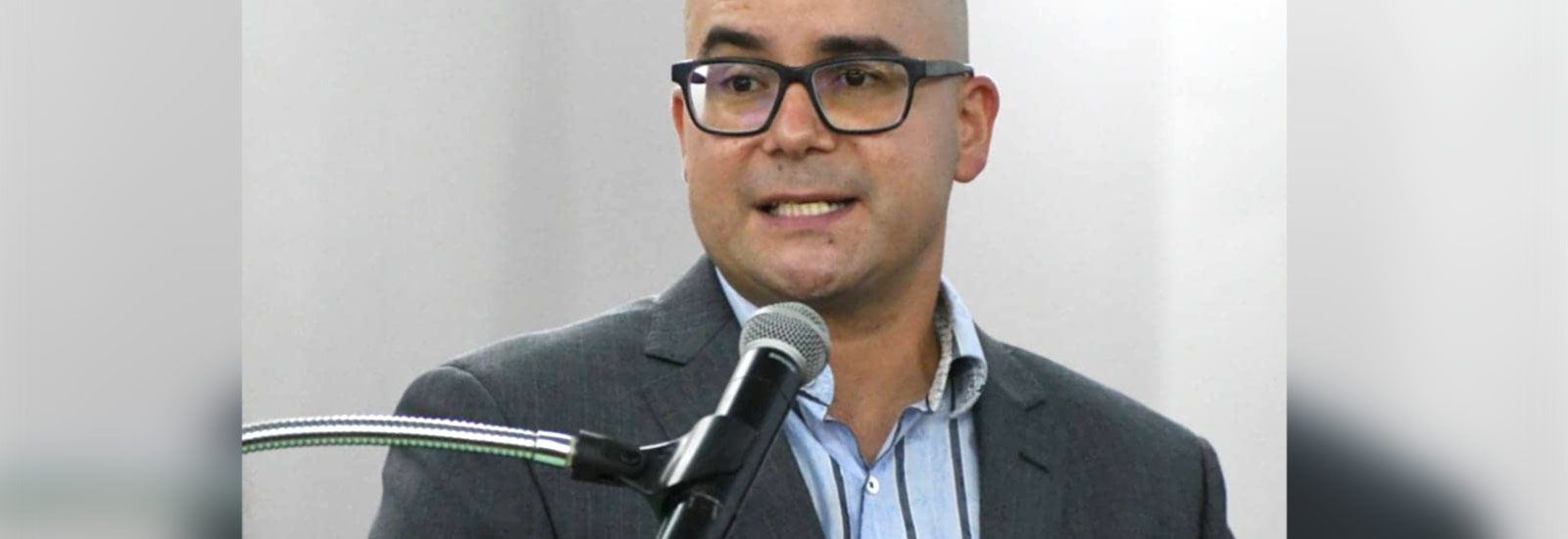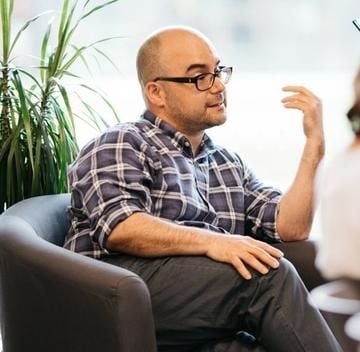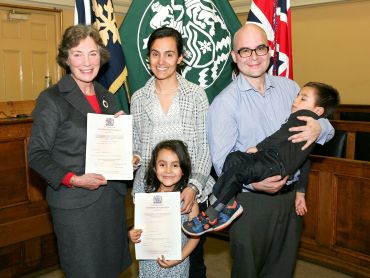
Prof Carlos Vargas-Silva on the politics of box ticking and the many myths around migration
Growing up, Carlos Vargas-Silva knew he was white. Along with most of his fellow Puerto Ricans, he was white. One drop of white blood is enough, he explains, in Puerto Rico for someone to be in the white category. That is why, he says, more than 90% of the mixed population identifies as white.
But then as a young man, the Professor of Migration Studies, went to the United States to study. On a visit to the dentist, he discovered he was not white anymore. A helpful dentist’s assistant told him, when he ticked the ‘white’ box on the registration form, that he was not, in fact, white. He was, she explained, Latino. He needed to tick that box, she said. Not being familiar with the idea, the student asked who were Latinos. Simple, she answered, anyone south of the US-Mexican border.
So, Carlos ticked the ‘Latino’ box and, for the first time in his life, became part of a ‘minority’. He joined the Latino community. He mixed with other ‘Latinos’. He played Latino music. He married a Latina (from Colombia, more than 3,000 miles south of Tijuana, so definitely a Latina).
But then, everything changed - again. The young couple moved to the UK – to Oxford, where he took up his current role. And a similar situation happened.
Filling in a form, he looked for the Latino box to tick, but discovered the UK does not have a Latino box. Instead, he saw there was a Caribbean box. He thought this would actually be more appropriate, since he came from a Caribbean Island, albeit one which entitled him to US citizenship. So, Professor Vargas-Silva ticked the Caribbean box. No, he was told, he was clearly not Caribbean…He was white.
In America, everyone south of the US-Mexico border is Latino, irrespective of skin colour, in the UK, I was white other, because of my skin colour
But he was not white British or white Irish – two boxes. Looking at the form, he saw there was another box ‘white other’ – and that was decided. He was back to being white again – although he was still ‘other’. His children, however, are in a different category – of which more later.
It has been a helpful, although baffling, experience, Professor Vargas-Silva says, in a very understanding and non-offended way, ‘Arriving in America, it was my first experience of my own difference. I became part of a group of people. It changes you.’
He laughs very good naturedly, ‘It had some uses. I qualified for scholarships, and I liked the Latino people I met. But I was not white anymore. It was very clear; I was now part of a minority. I was in a category.’
‘I’d never been in a category before leaving my own country,’ he continues. ‘When I came to the UK, it was different. My first language was not English, but I was not seen as Caribbean, because I am not black, so I was in a category with people from southern Europe – ‘white other’. I still am.
'In America, everyone south of the US-Mexico border is Latino, irrespective of skin colour. In the UK, I was white other, because of my skin colour.’
‘It’s interesting,’ he says, with the detached air of an academic studying a problem. Since leaving Puerto Rico, the economist has specialised in migration. His research covers the impact of migration on individuals, countries and economies. And he explains, ‘I am interested in issues of identity in the Labour market.’
Professor Vargas-Silva dismisses the current ‘migrant crisis’ as manufactured and maintains there have been ‘concerns’ voiced about immigration for many years - before any small boats took to the water. Having studied the impact of migrants on economies, he insists, though, that there is no significant negative impact on an economy and Professor Vargas-Silva maintains, there is no evidence of benefit tourism.
‘People do not move for this reason,’ he says. ‘Those who migrate for employment, actually do more work than the usual rate in the UK…they want to work, not claim benefits.’
According to statistics, he says, those who migrate to work in the UK, are eight percentage points more likely to be in employment than local workers, ‘It is easy to blame migrants because inflation is high and things are difficult. But the main incentive for most migrants to move is to work – and there is nothing new about that.’
There are far more migrants than come in small boats, he says. But, he adds, it can be 25 years before refugees [who have been successful in their claims] will be working at the same level as those born in the UK, ‘It’s a long time.’
Some people say, countries in the Global South are losing all their best people. But there is very little evidence to sustain this claim…the majority stay, of course. There are very few cases where there has been a ‘brain drain’
As part of his work, Professor Vargas-Silva is also interested in what happened to the places that are ‘left behind’ and what happens to the people who leave. He is sceptical about the ‘brain drain’ idea, in which ‘left behind’ countries struggle because all their most valuable citizens have gone.
‘That’s not true,’ he says bluntly. ‘Some people say, countries in the Global South are losing all their best people. But there is very little evidence to sustain this claim…it may be hard to get a proper education or good job and some people leave. But the majority stay, of course. There are very few cases where there has been a ‘brain drain’.’
Professor Vargas-Silva continues, ‘It is a self-selecting process and the people who go become different from the people who stay.’

‘But not everyone goes, of course. That is the price some people are prepared to pay for remaining in their home country. Most people don’t move that far from where they are born.’
‘If everyone moved, you would expect all poorer regions of Europe to be empty, since there is nothing stopping them moving to the richer parts.’
But aren’t there villages in Spain where people of working age have gone?
‘But there are still people there,’ says Professor Vargas-Silva.
And many who leave and create a home elsewhere, he says, send remittances back ‘home’ – which help the local economy. They also provide funds for investment and create connections for export-oriented business ventures in their home countries.
Once someone leaves, it is very common for them not to feel as though they belong in the country they have left. People at home see them differently…people in Puerto Rico see me differently
But, he says, they may still not feel as though they are part of the community, ‘Once someone leaves, it is very common for them not to feel as though they belong in the country they have left. People at home see them differently…people in Puerto Rico see me differently.’
He says, ‘You acquire different skills abroad, experience different things and learn a lot.’
For migrants, he says, the country they have left behind remains preserved in their consciousness as it was when they left. For instance, he says, many Irish Americans, whose ancestors may have left Ireland more than 100 years ago, think of the Ireland that was left behind, rather than the modern European country. It may not matter, but it may also make a ‘return’ difficult.
In terms of the lives of migrants in their new home countries, he says, ‘People have networks [of similar backgrounds] and sometimes live separate lives from the local community.’
But, he says, the internationally ‘hostile’ environment towards migrants has a greater impact on people who are perceived to be from a different ethnicity or religion. Some people, he gives Australians in the UK as an example, are not seen as ‘migrants’.
For migrants, he says, the country they have left behind remains preserved in their consciousness as it was when they left. For instance, he says, many Irish Americans, whose ancestors may have left Ireland more than 100 years ago, think of the Ireland that was left behind, rather than the modern European country
When he first went to the US, he says, he felt different, ‘A visitor. But then I became part of the Latino community. It was a minority that belonged – whereas some migrants are seen as minorities which do not belong.’
Nevertheless, he says, ‘People are very vocal about the impact of migration in general - but not about the migrant who lives around the corner.’
Professor Vargas-Silva recognises that migration in the UK is now higher than previously, a trend which started in the mid-2000s. He heads the university’s migration studies course, as an economist. Students on the course, a small minority of whom come from the UK, are also taught by anthropologists, sociologists and political scientists.
As a child in Puerto Rico, the schoolboy Carlos loved Maths – but his future career may have been affected by his mother’s career (she is an economist). But he says, ‘I was interested in politics though and wanted to be a politician.’
However, he says, like the political slogan, ‘What really matters is the economy.’

‘They’re different from me,’ he says, slightly sadly. Different?
Professor Vargas-Silva laughs, ‘They queue. In Puerto Rico no one queues. My children would make the longest queue, though.’
They also tick a different box, he says, ‘They tick a ‘mixed’ box….and they see themselves differently.’
For a moment, Professor Vargas-Silva looks slightly confused, or perhaps surprised. His studies of migration encompass economic and social impacts, but identity across the generations is something different.
He is not concerned about the ‘Tebbit cricket test’, and has been trying to interest his son in Baseball, his favourite sport.
‘He’s only interested in football, though,’ he says.
By Sarah Whitebloom